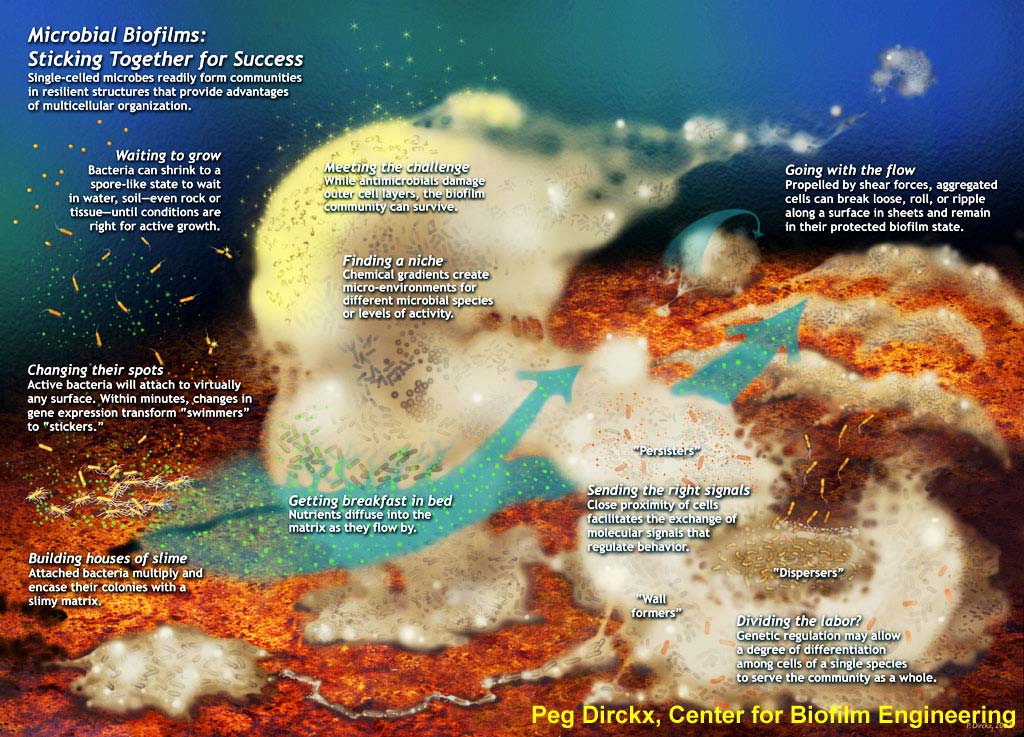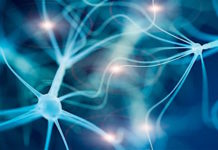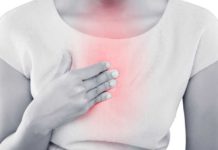Scientists at Queen’s University Belfast have made a breakthrough in the fight against the most resistant hospital superbugs – Pseudomonas aeruginosa, staphylococci and E.coli.
The team from the School of Pharmacy at Queen’s have developed an innovative antibacterial gel that acts to kill Pseudomonas aeruginosa, staphylococci and E.coli using natural proteins. The gel has the ability to break down the thick jelly-like coating, known as a biofilm (click on image above for larger version), that covers bacteria and makes them highly resistant to current therapies, while leaving healthy cells unaffected.
According to lead researcher, Dr Garry Laverty, “When bacteria attach to surfaces, including medical implants such as hip replacements and catheters, they produce a jelly-like substance called a biofilm. This protective layer is almost impossible for current antibiotics to penetrate through. Therefore bacteria deep within this protective layer are resistant as they remain unexposed to the therapy. They grow and thrive on surfaces to cause infections that are very difficult to treat. The only option is often to remove the medical implant leading to further pain and discomfort for the patient. Our gels would prevent this.
“Our gels are unique as they target and kill the most resistant forms of hospital superbugs. It involves the use of gels composed of the building blocks of natural proteins, called peptides. The same ingredients that form human tissue. These molecules are modified slightly in the laboratory to allow them to form gels that will rapidly kill bacteria. This is further evidence of Queen’s research advancing knowledge and changing lives.”
The new approach, developed as part of an international collaboration between the School of Pharmacy at Queen’s and the School of Chemistry at Brandeis University, Waltham, USA, is published in the journal Biomacromolecules next month.
The results will form part of a presentation delivered by Dr Laverty at the Academy of Pharmaceutical Sciences, UK PharmSci: The Science of Medicines conference at the University of Hertfordshire on the 8th September 2014.
Story: Garry Laverty, Alice P. McCloskey, Brendan F. Gilmore, David S. Jones, Jie Zhou, Bing Xu. Ultrashort Cationic Naphthalene-Derived Self-Assembled Peptides as Antimicrobial Nanomaterials. Biomacromolecules, 2014; 140807094711008 DOI: 10.1021/bm500981y















